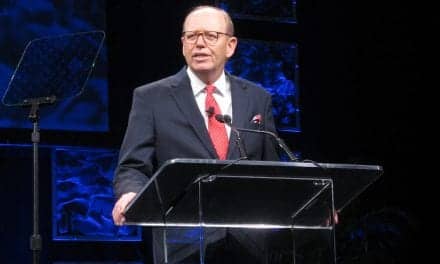Dear Editor:
I write this letter to raise a point about the lives and professional future of many foreign students who are pursuing the Doctor of Audiology (AuD) degree and are waiting to receive a work visa.
Many of you are aware that President Obama started the Science, Technology, Engineering and Mathematics (STEM) initiative in the early part of his first term. The need, the goal, and the plan of this initiative is clearly outlined at: http://www.ed.gov/stem
The problem is that the US Immigration Department has not classified the AuD program as a STEM-designated degree program (see: http://www.ice.gov/doclib/sevis/pdf/stem-list.pdf).
Importantly, the Immigration and Customs Enforcement (ICE) also does not classify Audiology as a STEM discipline. Interestingly, Optometry is included—but not Audiology. (The code for Audiology is 512002, according to SEVIS record.) This is a serious concern because it is having an immediate impact, and will continue to have a long-term effect, on foreign students and AuD programs.
The immediate effect. The immediate effect is that a student who is enrolled in an AuD program gets only 12 months of Optional Practical Training (OPT), as opposed to other STEM-designated students who receive 29 months.
For those of you who are unfamiliar with OPT, Optional Practical Training is a period during which graduate students with F-1 status and who have completed or have been pursuing their degrees are permitted by the US Citizenship and Immigration Services (USCIS) to work for, at most, 1 year on a student visa towards getting practical training to complement their field of studies.
On April 4, 2008, the US Department of Homeland Security (DHS) released an interim final rule extending the period of OPT from 12 to 29 months for qualified F-1 non-immigrant students. The extension is available to students who are employed by businesses enrolled in the E-Verify program or who make use of valid work permits and social security. To be eligible for the 12-month permit, any degree in any field of studies is valid. For the 17-month OPT extension, a student must have received a STEM degree in one of the following approved majors listed on the USCIS website at: http://www.ice.gov/sevis/stemlist.htm
The long-term effect. In my opinion, this is going to have a significant adverse affect on the AuD students/programs; the number of work visas are limited, and they are not assured that of a work visa during the first round of lottery. This means they have to wait another year. The problem is that, if Audiology is not considered a science, they will not get any extension and they have to leave the United States within 60 days.
This makes the AuD an unattractive degree to foreign students, as they don’t see the scope for more than 12 months. Employers will think twice before hiring a fresh foreign AuD graduate because they don’t know if he or she will be able to stay beyond a year.
Traditionally, a lot of employers hire their “4th-years” based on their performances, and the current situation suggests we will see a decrease in the numbers of hired foreign 4th-year AuD extern students.
In a phone conversation that I had with a renowned immigration lawyer, he told me that it was his opinion that USCIS/ICE is not completely clear if the AuD is an interim degree, advanced degree, or a doctoral degree program. I am seeking to start a conversation that will reach the top officials at ICE http://www.ice.gov/about/leadership, explaining the fact that Audiology is a science and that the AuD should be included as a STEM-designated degree program.
—Sugata Bhattacharjee, AuD
FAAA ?Chair-International Subcommittee?
[email protected]; Phone: (703) 380-2867




